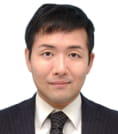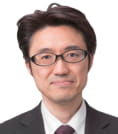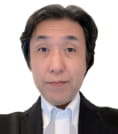- JST Home
- /
- Strategic Basic Research Programs
- /
 CREST
CREST- /
- Research Director/
- Mathematical Information Platform/
- [Mathematical Information Platform] Year Started : 2020
[Mathematical Information Platform] Year Started : 2020
Tetsuya J.Kobayashi
Decoding of Information in Multi-Sourced Chemical Mixtures and its Applications
Grant No.:JPMJCR2011
Research Director
Tetsuya J.Kobayashi

Professor
Institute of Industrial Science
The University of Tokyo
Collaborator
| Taishin Akiyama | Team Leader Center for Integrative Medical Sciences RIKEN |
| Akira Funahashi | Professor Faculty of Science and Technology Keio University |
| Tsuyoshi Minami | Associate Professor Institute of Industrial Science The University of Tokyo |
Outline
We will develop mathematical techniques for deciphering information conveyed by mixtures of complex chemical compounds from multiple sources. We aim to alleviate and solve combinatorial problems originating from mixing of chemicals by using physico-chemical constraints in chemical sensing. We also construct an integrative mathematical theory of chemical reaction dynamics with algebraic structures to comprehend the funcitons and constraints at the molecular, reaction, and dynamical levels. These techniques will be applied to designing multi-array chemical sensors and analyzing immunological, olfactory, and intracellular systems.
Kohei Suenaga
Formal Analysis and Design of AI-intensive Cyber-Physical Systems
Grant No.:JPMJCR2012
Research Director
Kohei Suenaga

Associate Professor
Graduate School of Informatics
Kyoto University
Collaborator
| Fuyuki Ishikawa | Associate Professor National Insititute of Informatics Research Organization of Information and Systems |
| Masako Kishida | Professor Institute of Systems and Information Engineering University of Tsukuba |
Outline
Ensuring the safety and reliability of AI-intensive cyber-physical systems (AI-CPS) is a crucial issue that needs to be addressed. To this end, we study a mathematically-solid formal design method for AI-CPS. We also conduct case studies on various realistic models to demonstrate the effectiveness of our approach. In collaborating with the French research team, we will complement each other’s strengths and conduct research in a leveraged way.
Yoshie Sugiyama
Fusion of Mathematical Analysis and AI Technology using the wall micromotion based from medical images of 4D-CTA / 4D-MRA -Mathematical data science integrated simulation for preemptive medicine-
Grant No.:JPMJCR2013
Research Director
Yoshie Sugiyama

Professor
Graduate School of Information Science and Technology
The University of Osaka
Collaborator
| Takuya Maekawa | Professor Graduate School of Information Science and Technology The University of Osaka |
Outline
Cerebral aneurysm is a high-risk disease with a case fatality rate of over 50% due to rupture. In recent years, a minimally invasive observation method has been established by “CT tomography / magnetic resonance imaging” instead of “direct viewing” in highly invasive craniotomy. In this research, we will develop a technology to estimate the “wall properties of cerebral aneurysm” by making full use of fusion of mathematical analysis and AI technology based on medical images from 4D-CTA / 4D-MRA. Furthermore, we will demonstrate its effectiveness through a number of cases, and attempt to automate the protcol for implementation, within society.
Hirofumi Notsu
Performance improvement of physical reservoir computing based on the theory of dynamical systems
Grant No.:JPMJCR2014
Research Director
Hirofumi Notsu

Professor
Institute of Science and Engineering
Kanazawa University
Collaborator
| Hayato Chiba | Professor Advanced Institute for Materials Research Tohoku University |
| Kohei Nakajima | Associate Professor Graduate School of Information Science and Technology The University of Tokyo |
Outline
Physical reservoir computing (PRC) is a recently introduced information processing framework that employs a physical nonlinear dynamical system as a computational resource. PRC has advantages such as a low computational cost and a fast optimization. In this research, to figure out the potential information processing capability of a PRC, a mathematical theory for a PRC based on the theory of dynamical systems together with its mathematical model and numerical analysis for reducing the computation cost will be developed, and a real implementation of such a PRC will be studied. In the end, a theory for the design of high performance reservoirs will be established and contributed to the next generation of information processing technology.
Kenji Fukumizu
Innovation of Deep Structured Models with Representation of Mathematical Intelligence
Grant No.:JPMJCR2015
Research Director
Kenji Fukumizu

Professor
The Institute of Statistical Mathematics
Research Organization of Information and Systems
Collaborator
| Taiji Suzuki | Professor Graduate School of Information Science and Technology The University of Tokyo |
| Tatsuya Harada | Professor Graduate School of Information Science and Technology The University of Tokyo |
Outline
To realize technological leap in the computational principles of artificial intelligence using mathematical intelligence representations, we will study the following three topics. (a) We will study mathematical intelligence representations using algebraic structures and differential equations to establish new design methods for deep structured models. (b) We will study functional representations and regularization to elucidate the significance of deep and redundant models, and study efficient optimization methodology. (c) We will study practical intelligent systems by investigating images, video, audio, and their integration with natural language, aiming at connecting developed models and methods with social issues.













